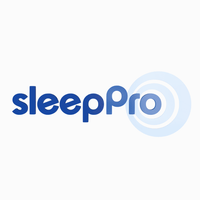Ask yourself this important question before it’s too late.
Is my snoring Sleep Apnea?
Everyone who has Sleep Apnea snores, but not everyone who snores has Sleep Apnea. So how do we know which of the two problems we have?

Sleep Apnea can affect anyone; man or woman, young or old. It seems to run in some families, suggesting a possible genetic basis. People most likely to have or develop Sleep Apnea include those who snore loudly, are overweight, have high blood pressure, and may have some physical abnormality in the nose, throat, or other parts of the upper airway.
Sleep Apnea is a health condition involving the collapse of the upper airway while an individual sleeps, leading to reduced airflow to the lungs. This often causes the individual to wake up at frequent intervals during the night as a reflex response to the resultant insufficient oxygen supply.
The key symptom of Obstructive Sleep Apnea (OSA) is very clear. Breathing pauses a number of times during sleep and these are called apneic events. There may be as many as 20 to 30 or more of these events per hour and between them you will snore.
OSA may also cause you to have a choking sensation and when your breathing restarts, you may make a loud snort or gasp. These frequent breaks in deep, restorative sleep often result in headaches and excessive daytime sleepiness and it has been proved that this constant interruption of oxygen supply to the brain can often have deadly results. Other symptoms include dry mouth or sore throat and problems paying attention.
This common sleep disorder is characterised by these repeated interruptions in breathing throughout the sleep cycle. Chronic sleep or respiratory conditions can have devastating effects if not treated or diagnosed, and it is estimated that 80% of patients with OSA remain undiagnosed, which can impact long-term health by turning sleep or breathing into a burden with the following being the key problems that result.
- High blood pressure
- Irregular heartbeat
- Heart disease/heart attack
- Stroke
- Type 2 Diabetes
- Driving and work-related accidents
Sleep apnea affects more than just sleep; it can affect the relationships, productivity and even overall health of those suffering from this condition. Even worse, rather than solving the problem, sleeping with the usually prescribed continuous positive airway pressure (CPAP) bulky equipment can sometimes make it even harder to get a good night’s rest. An incredibly high percentage of those using CPAP equipment simply stop doing so and therefore receive no treatment and are described as ‘CPAP intolerant’.
Now, in many cases other than those which are extreme, difficulty in wearing the CPAP facemask through which oxygen is pumped all night, is no longer a problem as an efficient oral appliance will prevent most of the problem and in doing so, protect your short and long term health.
Recently, both the NHS and the American Academy of Sleep Medicine (AASM) approved dental appliances as a first line of treatment for snoring and mild to moderate sleep apnoea and for patients with severe sleep apnoea who cannot tolerate CPAP.
After extensive research, the appliance recommended by the NHS in the UK above all others, was the SleepPro Custom, which moves the lower jaw forward, into a comfortable position, and ensures there is no obstruction of your airway. An ideal solution for snoring and related issues, the Custom can improve sleep quality and is a medically approved alternative to CPAP therapy and the awkward and uncomfortable CPAP equipment.
The SleepPro Custom is made from a fully customized dental impression that you would create with the special kit provided, and as a consequence is comfortable as well as effective. Once we receive your impressions our UK Dental laboratories will custom make the oral appliance to fit you perfectly. It is many times cheaper than similarly made appliances that are supplied by a Dentist, and it is made in exactly the same way.


